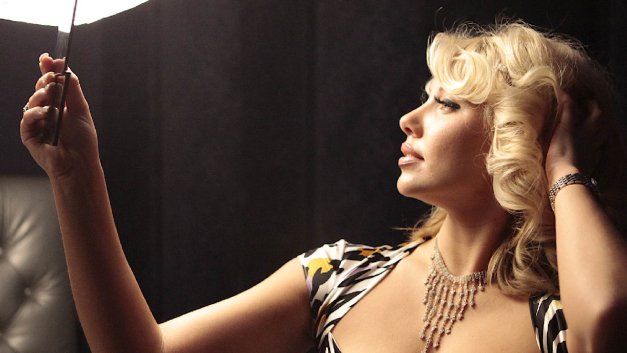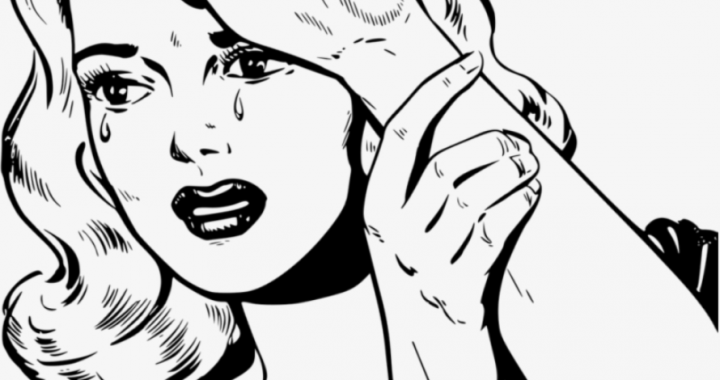How could I not? I read chapter 2 of Mr Bell’s Plot book through the lens of my last novel. Why? Because I wrote They Lived They Were with plot squarely in mind. At first I wrote freely, as I tend to do. But later, every editing decision, every scene selection, anything I did was in service of this thing called plot. Guided by questions at the heart of structure: “How can I make this next page fit with the whole?” “Why is this here?” “What will make this story more kick ass?”
The tragedy: as anyone who reads or will read the novel can tell, I had a narrow concept of plot when I started. And I graduated from an MFA program for Christ’s sake. My workshops did nothing but teach me the vocab of story. I even took a course called “Style, Form, and Meaning,” which was essentially a plot class. That’s where I learned “What people remember is the plot.” And precisely why I wanted my graduate thesis to be a plot-juicy novel was because of this class.
Well, I failed. Big. I applied systems, I put order where there wasn’t any to be had, and I tried and tried. Still . . .
If I did walk away from this project, never to edit it again (aka I published it), then it was with this intention: to allow readers to enjoy what does work and for myself to learn from my mistakes, rather than to photoshop them in post.
. . .
Look at the elements of your current plot. (I will analyze TLTW.) Are they lining up in a way that will get readers into the story? Or are you ignoring structure? If so, why?
Step one is to recount, I suppose. I could recourse my notes and my diagrams or to the novel itself. But because this must also be a test of “how well” the plot worked, then the only way to do that is to do it off the top of my head. Ultimately, that’s what a great story does. It follows you. Like how I remember to stay chill the way The Dude stays chill. Or how I remember digging holes gets harder and harder every day, like I read in Holes, twenty years ago. Or how I knew what I wanted my marriage to look like, after reading Mrs Karenina mess up hers next to Mr Levin do his right.
In TLTW we are introduced to a DJ who seems really kick ass but has a terrible drug habit. The disturbance seems to be when he falls unconscious from heat stroke, dehydration, and drug withdrawals at the end of chapter one. But this is a usual Sunday. Sure he can rock a stage, as we see him performing at clubs, but he’s also a liar, a lazy brat, and after the wrong things for the wrong reasons: he wants to produce the song of the summer, which is in itself ridiculous, on top of the fact that he only wants that to rub it in his ex-girlfriend’s face.
The real disturbance comes when he loses one of his nights at the club he works at. The owner doesn’t take him seriously anymore, we find out, and so turns it into a guest night for more popular artists. The protagonist is shaken, but this doesn’t force a change, in fact he ignores it in favor of continuing on his journey.
We think we meet a mentor character, an old timey DJ who used to be a legend and who shows the protagonist how to use a turntable. But it isn’t the main character’s career that is at stake. It’s his broken sense of identity, his messed up love life, and his (lying, lazy, cocky) personality that makes us roll our eyes at him. Meaning, the real mentor in this story is the next love interest: a 40-something news reporter who is grounded in life and will ground the protagonist too. They begin a friendship that crosses into a love affair, though realistically and ultimately that will not work out.
The first “door” or plot point of no return is when the protagonist finally convinces his boss to give him a night to debut his first EP. After that the rest of the story is him putting the pieces together for a show he believes will define the rest of his career.
Of course obstacles will prevent him from executing the necessary preparations. He relapses into drugs. He spends all his time in his own head, writing silly journal entries. And he doesn’t complete the EP itself, which is the whole point of the show.
The second “door” the protagonist goes through is the show itself. All the tension and anticipate comes together, in this moment. He blows it, naturally, and is left feeling like his life is over. There is no going back, no chance in hell or heaven to ever have a “first EP show” ever again. It’s like his career lost its virginity. And he will be a wreck the rest of his life.
The final act of the book is the hopeful one. The protagonist discovers that life moves on. That even if he crossed the line between friend and lover with his mentor, she is still there to support him. His brother also never hated him for lying, while his father who harbored some weird animosity towards his eccentric son also stands by him. Also the guest artist who took his slot at his club ends up being a touring artist who always had respect for the protagonist. And being successful enough and encouraging enough she invites him on to go on tour with her.
The story’s happily ever after belongs to them two. The protagonist writes a second EP, one that is a hit, and the two DJs fall in love, get married, and yeah. That’s the story in a couple of paragraphs.
. . .
Step two would be to analyze the structure, and where I think it doesn’t work. Listen, maybe it does work, as in after clearly putting it in order up above, it does seem like a sexy and interesting story. And even a handful of readers have raved about it. Nevertheless, some reviewers are left confused at the end, or struggle to get through the first couple of pages.
Where I struggled, and where I struggle, is with the Lead. It took me three drafts to finally decide to make the protagonist a successful DJ. In the beginning, the lead DJ was supposed to be a struggling unknown artist. Only later did I decide it was much stronger to have him be a struggling popular artist. Despite this revelation, I think the residual loserville that mired the original main character is felt throughout, causing dissonance. At points his struggles are boringly deserved (for being lazy).
Whereas in others his struggles are the result of his emotional tragic flaw (drug dependency, family trauma). Readers, including myself, would prefer to read about a person who is better than ourselves AND YET descends into darkness — thereby making us feel good about our own lives. Not someone who, duh, would mess up his show, he was always lazy. “If bad things can happen to a hero, then they can happen to anybody.”
The surface Objective comes across pretty clearly. DJ wants to debut his first EP. He wants to impress his ex. And he wants to be world famous. Who couldn’t relate? It’s all the stuff surrounding these wants, stringing them together, that gets all muddled in the “muddle” of the story. Although, I think where I failed here is in articulating what was a stake for the DJ — you don’t get a second shot at a first shot.
Worse still, I did not articulate the book’s real, deeper objective: the protagonist wants to heal from his past and live a healthy life. Nightmares and drama come and go, without any real address. It’s perhaps realistic to life, but without giving me (as a reader) a clear sense of “Oh this is what he needs to do in order to get x, y, z.” The whole point of the main plot (getting a show, failing, surviving his worst nightmare) serves his recovery and self-fulfillment. And yet I never put it so clear as I do here in this essay.
The Confrontation is pretty well laid out, c’mon I have to give myself some credit. I think if readers are turning the pages then it’s because every event in the book holds the protagonist back. The order of events also is correct.
The Knockout. Yikes. Yes there is a knockout ending. His ex apologizes. His mentor succeeds in transforming him into a decent human. And he gets the right girl at the end. They live happily ever after. Only . . . if I were to be completely honest, I didn’t trust myself to write this happy ending. I don’t know why. Maybe I thought it was cheesy. So what I did is craft a knockout, but threw a veil all around it and filled the room with smoke. Why? I thought it would be more artsy that way, compared to my fear of being seen as a Charmander when really really really I want to become a Charazard so bad.
Another issue arises when we put the book to the three-act test. First, I actually wrote this book in four acts. But no matter. Worse is this: Mr Bell puts the first door at the 1/5 mark and the final door at the 4/5 mark. But mine were a little off. The moment where the protagonist gets the date for EP show (first door) is not at the 1/5 mark but in THE MIDDLE OF THE BOOK!!!!!!!!!!!!!!!!!!!!!!!!!!!!!!!!!!!!!!!!!!!!!!!!!!!!!!!!!!!!!!!!!!!!!!!!!!!!!!!!!!!!!!!!!!!!!!!!!!!!!!!!!!!!!!!!!!!!!!!!!!!!!!!!!!!!!!!!!!!!!!!!!!!!!!!!!!!!!!!!!1111
It’s so clear where I went wrong. I knew the “point of no return” was the moment the DJ finally gets a date for his EP release. And yet, I thought that this point of no return, this “turning point,” should come in the middle. Remember those mountains we used to draw in literature class? I put this “door” at the freaking middle and not at the recommended 1/5 mark. This gives the first half a lot of drag, which, in order for it to be interesting, which I think I accomplished, I had to incorporate a million subplots and twists and interesting language to keep the reader interested. But plot-wise, with this EP being the story’s focus, everything turns into a drag.
The second point of no return, the epic failure of the show happens not at the 4/5 mark, but at the 3/4 mark, a little earlier than recommended. I would never admit why I did this. (I got lazy and sped up the narrative to the show.) But having a whole 1/4th of the book continue on after the end, especially with the knockout completely shrouded? The end just kind of firecrackers from page to page boom boom boom for a while, giving us an afterthought feeling, as opposed to the punch to the gut I would have liked. Plus, why I wrote so much after the great epic failure was because I needed to resolve all those plot twists and sub-stories from the first quarter of the book.
. . .
To conclude, I address Mr Bell’s final question, roughly: if I ignored the necessities of plot, what purpose did it serve the novel?
At the end of the day (wiping my shoes on the welcome mat before the house of humility) I say this: TLTW was an attempt at a great novel, as opposed to a great novel. I tried, but I failed. Like my protagonist I couldn’t commit myself to following the three act structure. Not because I was above it, or literary, or too good to write commercial fiction. Sadly, all I wanted was to write a commercially successful book like a fat wedding cake. What I got was a mud pie.
Lost in references. Riddled in foreign language. Punctured by an overarching meta-story . . . They Lived They Were documents my struggle to bring a beautiful book to life . . rather than to tell a great story. Maybe the pages turned out beautiful, in your opinion. I certainly think I did a good job of crafting pretty pages. But as a plot, as a story, that’s a little more questionable.
It sucks to even admit failure. But let me tell you why I bothered. I wanted the story to be popular in spite of all its author’s flaws. I wanted to reach for the stars, reach them on the little fuel I had. The parts that didn’t work, even from my pov, I kept in. Why? Because I wanted to prove that people could learn Russian and still enjoy a book. That readers could struggle like me and get to the end with more than some feeling of accomplishment. More than that, I wanted to prove that I could write in a non-native language, while readers lost themselves to the madness and trauma of a lazy lying idiot.
“Fuck it, dude,” like the Dude says. Maybe I did or didn’t fail. But at least I tried. Just know this: I didn’t ignore anything. I just didn’t know any better. TLTW will get the score that the teacher thinks it deserves. But I know I put in 100% of myself into it. Time to move on.




